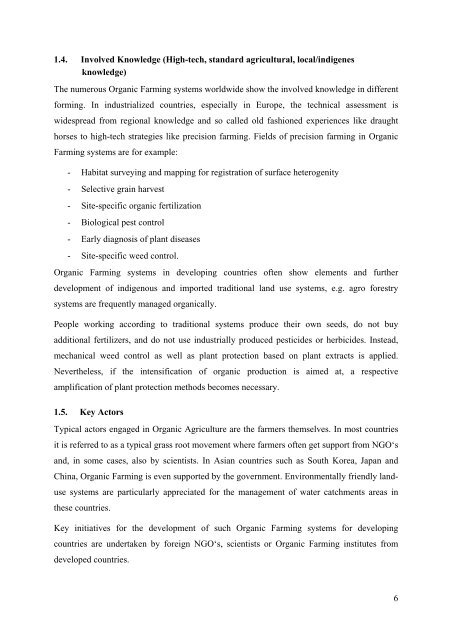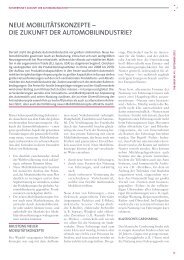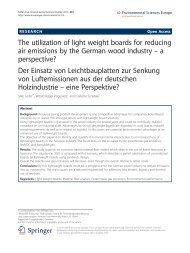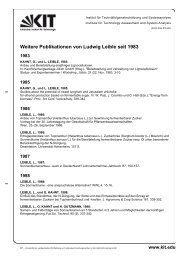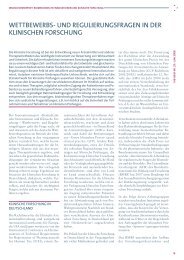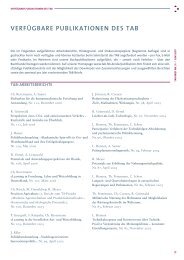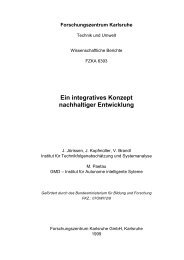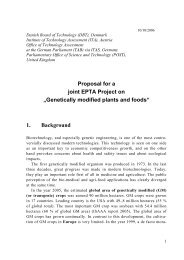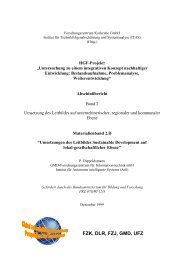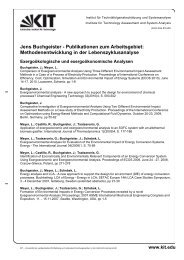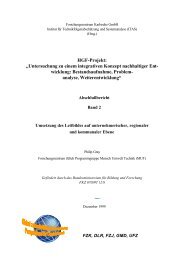Annex 4: Case study âOrganic Farmingâ - ITAS
Annex 4: Case study âOrganic Farmingâ - ITAS
Annex 4: Case study âOrganic Farmingâ - ITAS
Create successful ePaper yourself
Turn your PDF publications into a flip-book with our unique Google optimized e-Paper software.
1.4. Involved Knowledge (High-tech, standard agricultural, local/indigenes<br />
knowledge)<br />
The numerous Organic Farming systems worldwide show the involved knowledge in different<br />
forming. In industrialized countries, especially in Europe, the technical assessment is<br />
widespread from regional knowledge and so called old fashioned experiences like draught<br />
horses to high-tech strategies like precision farming. Fields of precision farming in Organic<br />
Farming systems are for example:<br />
- Habitat surveying and mapping for registration of surface heterogenity<br />
- Selective grain harvest<br />
- Site-specific organic fertilization<br />
- Biological pest control<br />
- Early diagnosis of plant diseases<br />
- Site-specific weed control.<br />
Organic Farming systems in developing countries often show elements and further<br />
development of indigenous and imported traditional land use systems, e.g. agro forestry<br />
systems are frequently managed organically.<br />
People working according to traditional systems produce their own seeds, do not buy<br />
additional fertilizers, and do not use industrially produced pesticides or herbicides. Instead,<br />
mechanical weed control as well as plant protection based on plant extracts is applied.<br />
Nevertheless, if the intensification of organic production is aimed at, a respective<br />
amplification of plant protection methods becomes necessary.<br />
1.5. Key Actors<br />
Typical actors engaged in Organic Agriculture are the farmers themselves. In most countries<br />
it is referred to as a typical grass root movement where farmers often get support from NGO‘s<br />
and, in some cases, also by scientists. In Asian countries such as South Korea, Japan and<br />
China, Organic Farming is even supported by the government. Environmentally friendly landuse<br />
systems are particularly appreciated for the management of water catchments areas in<br />
these countries.<br />
Key initiatives for the development of such Organic Farming systems for developing<br />
countries are undertaken by foreign NGO‘s, scientists or Organic Farming institutes from<br />
developed countries.<br />
6


